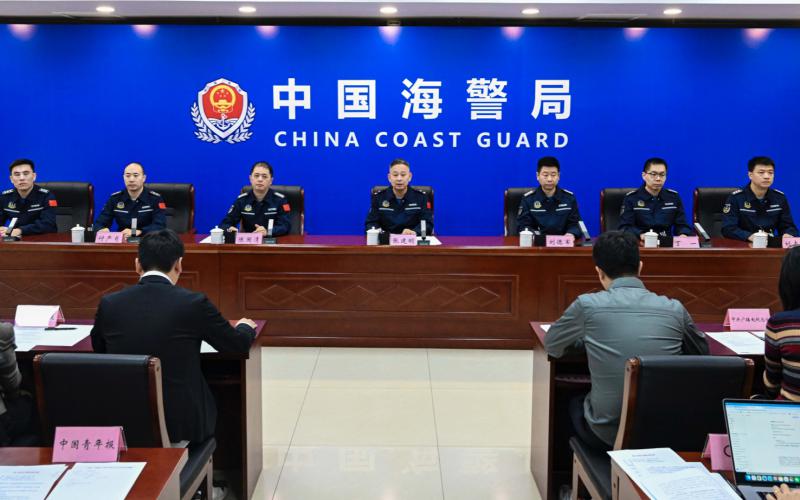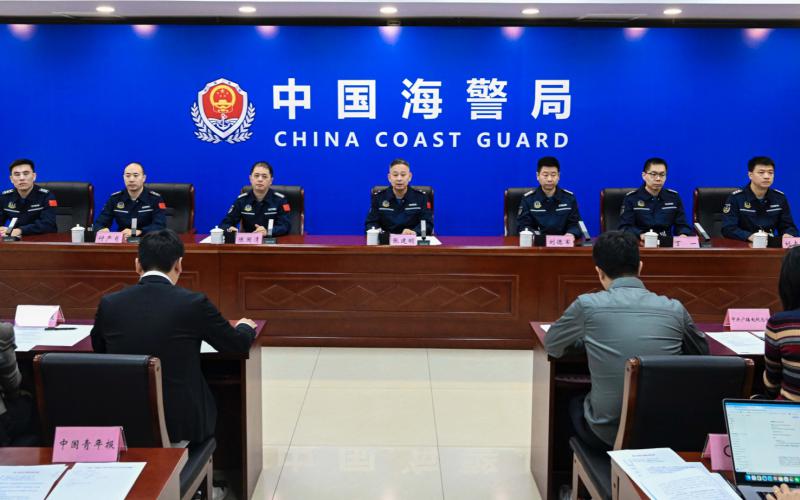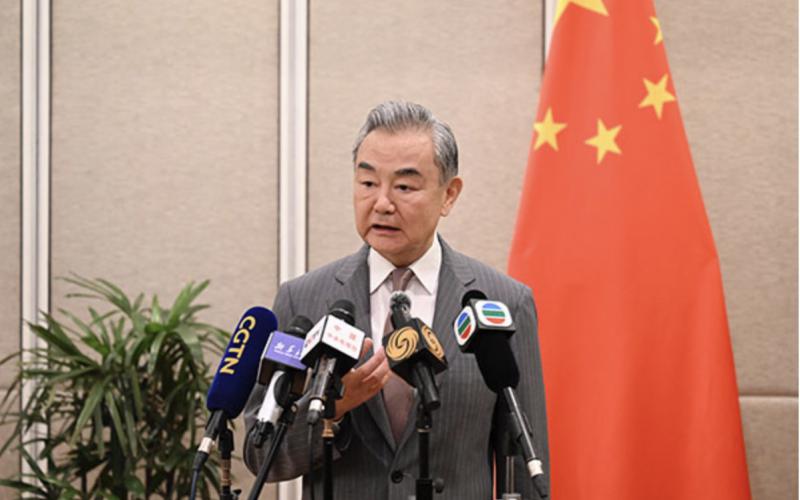MARITIME POLICIES
2026-02-06 | BY Bao Yinan
February 1, 2026 marks the fifth anniversary of the official implementation of the Coast Guard Law of the People’s Republic of China. On January 30, Zhang Jianming, the Director of the China Coast Guard, briefed the public on the progress of maritime rights protection and law enforcement since the law’s enactment.
2026-02-04 | BY Bao Yinan
February 1, 2026 marks the fifth anniversary of the official implementation of the Coast Guard Law of the People’s Republic of China. On January 30, Zhang Jianming, the Director of the China Coast Guard, briefed the public on the progress of maritime rights protection and law enforcement since the law’s enactment.
2025-08-25 | BY Lei Xiaolu
On July 12, 2025, Wang Yi, a member of the Political Bureau of the CPC Central Committee and Minister of Foreign Affairs, proposed during the ASEAN-plus foreign ministers’ meetings in Kuala Lumpur that “a new narrative should be built for the South China Sea. We should not always associate the South China Sea with friction, conflict, or confrontation, but with peace, stability, and cooperation. This should become the mainstream narrative in the future.” The narrative of the South China Sea should mirror the situation in the region, yet for a long time, it has not objectively portrayed the reality. Instead, it has served as a tool for geopolitical maneuvering by external powers. Minister Wang’s proposal seeks to rectify the narrative of the South China Sea, transforming it from a distorted “funhouse mirror” into a clear mirror that guides the region towards peace, stability and cooperation.
2024-11-05 | BY SCSPI
The root causes of instability in the South China Sea are mainly three factors. First, the United States has nakedly “chosen sides” on the South China Sea issue, standing firmly on the opposite side of China. Second, some claimants in the South China Sea dispute are trying to solidify their vested interests. Third, the so-called ruling of the South China Sea Arbitration almost completely denies China’s claims in the South China Sea.
2023-02-24 | BY Mark Hoskin
At no point did the Constitution suggest the waters within the bounds were included as territory, which would in any case have been violated in 1900 when islands further defined in the 7th April 1900 letter from the US to Spain and ‘embraced’ in the Cession were added, where according to the letter that was part of the preliminary negotiations according to the US in Palmas, the focus expanded from: “Any island within those described bounds.”To ascribe a water’s claim in the face of such language, when it is added to the domestic laws that were developed shortly afterwards and remained in force for a long period, is, quite frankly, absurd. To argue for a maritime limit within the bounds of the 1898 Treaty, the Phillipines is claiming that Spain and the US created an enclosed seas regime that was then ignored during a period when the US was supposedly against such laws.
2022-05-11 | BY Lucio Blanco Pitlo III
The second Marcos administration is expected to inject much policy continuity in dealing with the South China Sea. Bongbong can leverage his father’s role in laying the cornerstone of the 47-year-old official ties and Duterte’s friendly policy in the last six years to set ties on a good footing. Such goodwill can serve as a robust ballast to allow the two countries to insulate broader ties from the turbulence brought by the longstanding row.
2022-02-22 | BY Mark J. Valencia
The Biden Administration’s long awaited Indo-Pacific Strategy (IPS) has finally been released. It is being widely panned by both liberal and conservative critics. One says “any Indo-Pacific Strategy that does not directly identify the China threat and offers a comprehensive strategy for addressing it is no Indo-Pacific Strategy at all”. While this seems extreme, it is indicative of how far the administration would need to go to satisfy some of its critics.
2021-10-29 | BY Dan Steinbock
As the Duterte era is gradually ending, new arms races and nuclear proliferation cast a dark shadow over Southeast Asia. The Philippines may be sleepwalking into military-nuclear entanglements.
2021-10-15 | BY Mark J. Valencia
Another American foreign policy failure may be in the offing—this time regarding America’s involvement in the South China Sea situation.
2021-09-21 | BY James Bosbotinis
It is likely that Australia’s decision to acquire SSNs will further stimulate investment in the region in advanced submarine and anti-submarine warfare capabilities.










